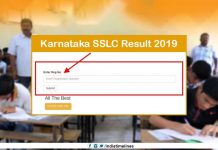
In a significant development, the Supreme Court of India granted bail to K. Kavitha, a prominent political leader and the daughter of Telangana Chief Minister K. Chandrashekar Rao, in the excise policy cases that have been making headlines. The court’s decision has not only provided relief to Kavitha but also brought attention to the intricacies of the legal and political landscape surrounding this case.
Background of the Case
K. Kavitha’s name surfaced in connection with the alleged irregularities in the Delhi excise policy case, where it was claimed that certain policies were manipulated to favor specific entities. The case, which has been under the scanner for quite some time, involves multiple individuals and companies accused of violating excise laws and indulging in corrupt practices. The Enforcement Directorate (ED) and the Central Bureau of Investigation (CBI) have been actively investigating these allegations.
Kavitha, a Member of the Legislative Council (MLC) in Telangana and a key figure in the state’s ruling party, Bharat Rashtra Samithi (BRS), was accused of being involved in the manipulation of the excise policy for personal gains. Her arrest and subsequent legal battle garnered widespread media attention, given her political stature and the potential impact on Telangana’s political dynamics.
The Legal Battle
The legal journey leading to Kavitha’s bail was marked by intense courtroom arguments, with her legal team asserting her innocence and claiming that the allegations were politically motivated. They argued that the evidence presented by the investigating agencies was insufficient to establish her involvement in any criminal activity.
The prosecution, on the other hand, maintained that Kavitha played a crucial role in the alleged irregularities and that her continued detention was necessary for the investigation to proceed without interference. They emphasized the gravity of the charges and the potential for tampering with evidence if she were to be released.
Supreme Court’s Decision
After carefully considering the arguments from both sides, the Supreme Court decided to grant bail to K. Kavitha. The court noted that while the charges against her were serious, the evidence presented so far did not justify her continued detention. The court emphasized the principle that bail is the rule and jail the exception, particularly in cases where the accused is not a flight risk or likely to tamper with evidence.
The court also imposed certain conditions on her bail, including the surrender of her passport and regular appearances before the investigating agencies. These measures are intended to ensure that she remains available for further questioning and that the investigation is not hampered in any way.
Political Ramifications
K. Kavitha’s release on bail has significant political implications, particularly in Telangana. As a key leader in the BRS, her arrest had created a wave of uncertainty within the party ranks. Her release is likely to bolster the party’s morale and strengthen its position in the state ahead of the upcoming elections.
However, the case is far from over. The investigation continues, and the legal battle will likely resume as the agencies gather more evidence and the courts deliberate on the charges. For now, Kavitha’s release provides her and her party some respite, but the shadow of the excise policy case will continue to loom large over Telangana’s political landscape.
Conclusion
The Supreme Court’s decision to grant bail to K. Kavitha in the excise policy cases is a pivotal moment in a case that has captured the nation’s attention. While the legal process will continue to unfold, the ruling reinforces the principle that an accused individual is entitled to bail unless compelling reasons dictate otherwise. As the investigation proceeds, all eyes will remain on the developments in this case and its potential impact on the broader political scenario in Telangana and beyond.


































Ledger Live